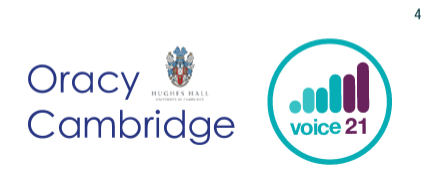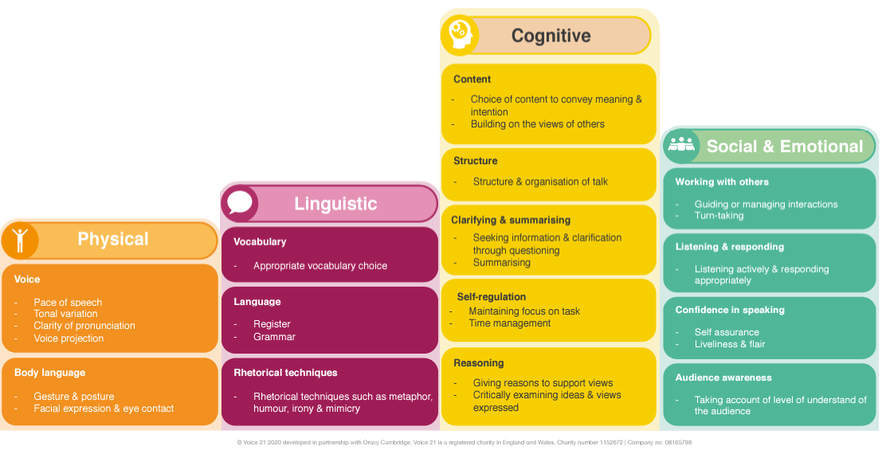
Oracy
Intent
At Ashmead school, we want our young voices, irrelevant of individual need or social background, to have the confidence to verbally articulate their thoughts, feelings and opinions with clarity and careful consideration. Our intent is for Spoken communication (Oracy) skills to be at the heart of the curriculum. We recognise how vital spoken language skills are for our pupils, and want them to actively and consistently show respect for the thoughts and opinions of others and to verbalise their responses in an appropriate and measured manner.
All pupils who attend Ashmead will have an understanding that their opinions matter, that they are valued, and that they are able to listen and feel listened to. Pupils will feel that their words and perspectives are respected by both pupils and adults alike and this will fuel their self-confidence as they move forward in education and life. At Ashmead, vocabulary forms a key part of all planning, teaching and learning. We aim to develop and encourage fluent speakers, with rich vocabulary, who are confident to operate in a wide range of situations.
We recognise the positive impact of spoken language and vocabulary development on pupils’ academic success and well-being. We believe that Oracy is fundamental for preparing pupils for the wider world due to many of our pupils starting their educational journey without the skills relevant for their age and having had limited opportunities to engage in vocabulary rich discussions. We want all stakeholders within our inclusive school community to feel valued, valuable and heard.
Implementation
In Early Years, Communication and language is one of the prime areas as ‘Children’s language skills are connected to their overall development and can predict their educational success.’ We ensure pupils are involved in hands on experiences, songs, poems, listening and acting out stories, have access to fiction and non-fiction texts, play, and learn in a language rich environment, enabling them to learn and explore new words.
Within English, the national curriculum for Key Stage One and Key Stage Two states that: ‘the curriculum reflects the importance of spoken language in pupils’ development across the whole curriculum – cognitively, socially and linguistically. Spoken language underpins the development of reading and writing.’
We have high expectations of pupils’ spoken language and listening skills. This derives from exposure to a talk-rich environment, and through purposeful talk in a dialogic classroom within a supportive community. We model and use resources to teach pupils the Oracy skills they need to participate successfully in a talk task. In order to support staff and pupils with the teaching and learning of speaking and listening skills, we are part of the Voice21 project working with external expertise and other schools within the local community.
environment, and through purposeful talk in a dialogic classroom within a supportive community. We model and use resources to teach pupils the Oracy skills they need to participate successfully in a talk task. In order to support staff and pupils with the teaching and learning of speaking and listening skills, we are part of the Voice21 project working with external expertise and other schools within the local community.
We aim to embed and model Oracy throughout every aspect of school life and see it as a growing part of the school’s pedagogy. Each class creates a set of discussion guidelines which are strongly linked to our school values so that pupils have norms for talk and feedback to pupils is purposeful. Skills in speaking and listening are explicitly taught and praised - teachers give recognition and feedback related specifically to their Oracy skills.
There are 4 strands within the Voice 21 Oracy framework:

Our long-term progression document, adapted using Voice 21 resources, identifies key expectations and outcomes for pupils at their different stages of development from EYFS to year 6.
Teachers harness Oracy to elevate learning, and exploratory talk is used with the support of ‘spring boards’ (activities to promote ‘talk’) to stimulate opinion, discussion, conversation and debate. Talk tasks are scaffolded with talk tactics, sentence stems and frames, and different groupings are used to ensure all pupils take an active role. We are currently developing opportunities for more presentational talk outcomes and identifying ways in which learning can be assessed through talk. We want all pupils to evidence learning in a purposeful and meaningful way.
Subject specific progression documents and medium-term plans identify the Tier 3 vocabulary (subject specific words) that pupils need to learn in order to talk like a geographer, a historian or mathematician, for example. Explicit vocabulary instruction is used to pre-teach, introduce and review vocabulary. Classroom displays also ensure that subject specific terminology is clearly displayed.
Word of the week has also been introduced to support pupils Tier 2 vocabulary (words which are often seen in written text and can have more than one meaning). Each week robust vocabulary instruction is used to introduce pupils to a given word and they are then praised for their use and recall of vocabulary from this point. While a selected word is introduced weekly, other Tier 2 words are also introduced as part of our Little Wandle phonics program and breadth of the curriculum as appropriate.
Impact
Pupils will have a voice. Our Oracy curriculum will enable pupils to:
- Confidently and respectfully articulate their ideas and opinions
- Respect the contribution of others with a diverse range of linguistic abilities
- Speak with clarity and eloquence
- Recognise the importance of listening when responding to others appropriately
- Become critical thinkers
- Justify ideas with reasons
- Ask questions to check understanding
- Develop a rich vocabulary
- Present to a range of different purposes and audiences
- Celebrate the diversity of languages, dialects and accents in school







